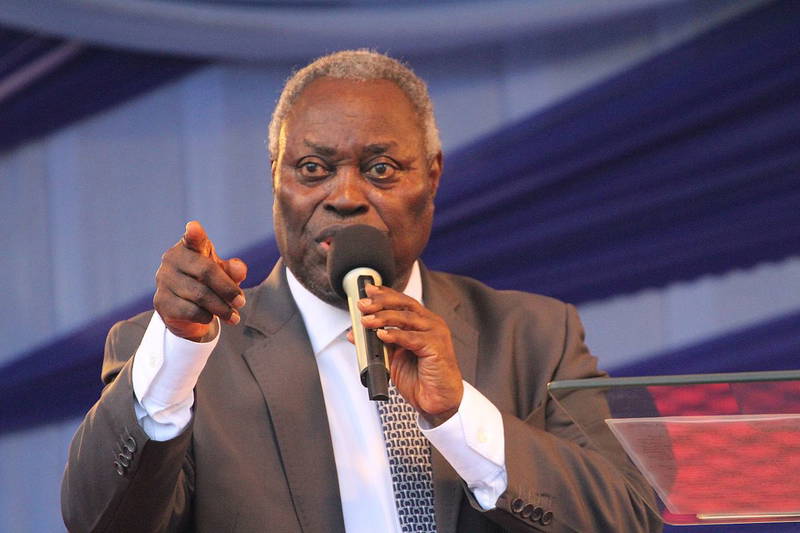In a world increasingly marked by division, religious leaders play a crucial role in promoting peace, understanding, and love among different faith communities.
One such leader is Pastor William Folorunso Kumuyi, the founder and General Superintendent of the Deeper Life Bible Church. Recently, Kumuyi emphasized the importance of fostering love and understanding between Christians and Muslims, underscoring the need for unity in an era where religious intolerance can lead to violence and discord.
Kumuyi’s message comes at a time when many parts of the world are grappling with sectarian violence and misunderstandings between religious groups. His appeal for love serves as a reminder that both Christians and Muslims share common values, such as compassion, charity, and the pursuit of peace. By focusing on these shared principles, religious leaders like Kumuyi can help bridge the gaps that often separate communities and promote harmony.
The essence of Kumuyi’s call lies in the recognition that both Christianity and Islam advocate for love, respect, and coexistence. The teachings of Jesus Christ emphasize love for one’s neighbor, while the Quran contains numerous verses that encourage kindness and compassion towards others. Both religions teach that believers should extend love beyond their immediate communities and engage in positive relationships with people of different faiths.
READ ALSO:Union Bank reports 20% growth in PBT H1, 2024, despite CBN’s intervention
In his speeches, Kumuyi has often highlighted the teachings of Jesus, who, despite facing persecution, preached love and forgiveness. He reminds Christians of the need to emulate this spirit in their interactions with Muslims and adherents of other faiths. Similarly, Kumuyi points to the teachings of the Prophet Muhammad, who emphasized the importance of treating others with dignity and respect. By reflecting on these teachings, followers of both religions can find common ground and work towards a peaceful coexistence.
Kumuyi’s message is not only about theoretical love; it is a call to action. He encourages Christians and Muslims to engage in dialogue and collaborative efforts aimed at addressing societal issues. Whether through interfaith dialogues, community service projects, or joint charitable endeavors, these initiatives can foster understanding and build relationships that transcend religious boundaries. By working together, Christians and Muslims can demonstrate their shared commitment to the common good.
Moreover, Kumuyi’s appeal for love comes at a critical juncture in many societies where religious tensions have sometimes escalated into violence. He believes that the time has come for both religious groups to actively promote peace and understanding. This can be achieved through education, where members of both communities learn about each other’s beliefs and practices, dispelling myths and stereotypes that often lead to fear and mistrust. Understanding the beliefs and values of others is the first step toward building a harmonious society.
Additionally, Kumuyi has pointed out the role of the media in shaping public perceptions of religious communities. He calls for responsible reporting that portrays both Christians and Muslims in a balanced light, rather than sensationalizing conflicts or negative stories. By promoting positive narratives and highlighting instances of cooperation and solidarity, the media can contribute to a culture of understanding and love.
Kumuyi’s emphasis on love is also a call for personal reflection among believers. He encourages individuals to examine their own attitudes and behaviors towards those of different faiths. Are they harboring prejudices or misconceptions? Are they willing to reach out to others in kindness and friendship? By addressing these questions, individuals can contribute to a larger culture of love and acceptance.
Furthermore, Kumuyi acknowledges the role of young people in fostering interfaith relationships. As the next generation of leaders, they have the potential to reshape narratives and break down barriers. He encourages youth to participate in interfaith initiatives, promoting dialogue and collaboration that can lead to lasting friendships and mutual respect. When young people engage with one another, they can challenge stereotypes and build bridges, ensuring a more peaceful future.
Kumuyi’s call for love between Christians and Muslims is also rooted in the understanding that humanity is interconnected. The challenges faced by one community often affect others, and collaboration is essential for addressing issues such as poverty, education, and health care. By coming together, religious communities can create a stronger collective impact and contribute to the well-being of society as a whole.
In his sermons, Kumuyi often reflects on the idea that love is not merely an emotion but a deliberate choice and action. He encourages followers to choose love in their interactions with others, even in the face of adversity. This active expression of love can take many forms, from small acts of kindness to larger initiatives aimed at promoting understanding and cooperation.
Kumuyi’s message resonates with many believers who recognize the need for unity in a world fraught with division. His call for love between Christians and Muslims serves as a reminder that, despite differences in beliefs and practices, there is a shared humanity that binds us all together. Embracing this humanity can lead to a more peaceful coexistence and a brighter future for all.
In conclusion, Pastor William Kumuyi’s urging for love between Christians and Muslims is a crucial reminder of the power of faith to foster unity and peace. By emphasizing shared values and encouraging dialogue, collaboration, and understanding, he paves the way for a future where religious differences do not lead to division but rather serve as a foundation for cooperation and mutual respect.
As believers take his message to heart, they can work towards building communities that reflect the love and compassion central to both Christianity and Islam, ultimately contributing to a more harmonious world for everyone.
